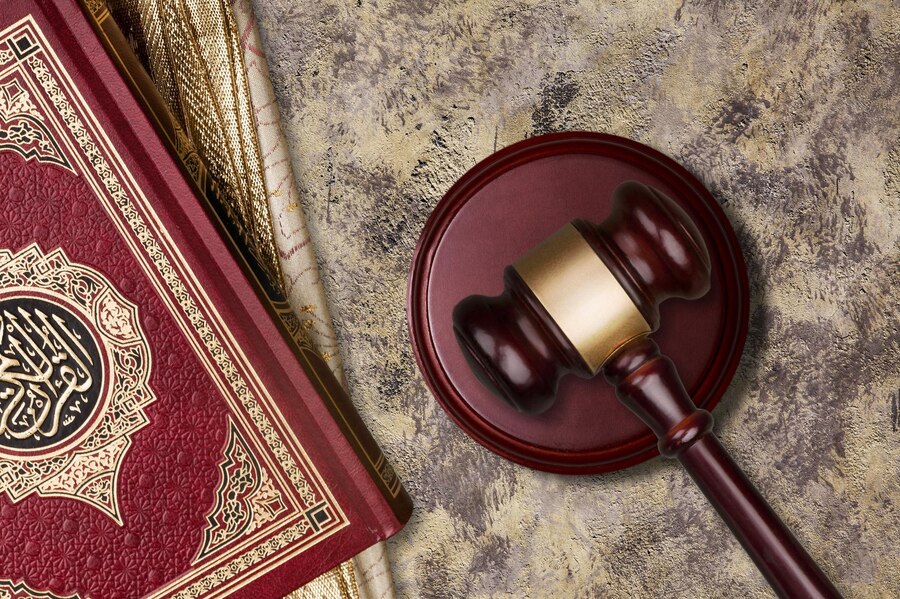
Islam between the Charters of Medina and Mecca
When the Prophet Muhammad (peace and blessings of Allaah be upon him) arrived to Medina, he found a fractured community. At the tribal level, there were the Aws and the Khazraj who are Arabs but in a state of permanent clash. Ethnically, these pagan Arab tribes united against Jews in a clear ethnic and religious conflict. There was also the new religious component, represented by the Ansar and the Muhajireen, who needed a roadmap that defined their dealings with the rest of urban society. Here, the Prophet wrote to them The Charter of Medina (وثيقة المدينة) in the first year of the Hijra (623) AD, which is considered the first civil constitution in the history of the Islamic state.
This Charter contained fifty-two items, twenty-five of which were related to Muslim matters, and twenty-seven related to the relationship between Muslims and non-Muslims, especially Jews and polytheists.
The second great Islamic Constitution, the Mecca World Charter, came in 2019, which drew a road map for Islam not throughout the Arab or Muslim world, but also at the global level. The Islamic mentality and as the result of negative historical accumulations, multiple failures, and multiple visions about Islamic identity identification (who are we?)and how to deal with the non-Muslim “the other” (what do we want from the world, and what does it want from us?) has found itself in a phase of great dispersion that has made it unable to interact healthily which will enhances its values on the one hand and reflects its added value to global culture. Hence, extremism and terrorism prevailed, and everyone became - from the perspective of this mentality - enemies of Muslims, and the solution - as extremists see - is to antagonize everything that is not Islamic. Here lies the importance of the Makkah Charter. This importance has been reinforced by the fact that it emanates from the kingdom of Saudi Arabia (the qibla of Muslims), and with the conviction of Islamic countries, and the blessing of more than 1200 respected Muslim scholars and from 139 countries of various Islamic sects and sects. Anyone who contemplates the nature and content of this important Charters will find it an important constitution and a clear road map for what should be a tolerant, moderate Islam, fighting terrorism and extremism. This document stipulates the achievement of peace and the preservation of the values of moderation in all Islamic countries on the one hand, and the preservation of these eternal Islamic values when dealing with non-Muslims. This Charter also stressed the fight against terrorism, injustice and oppression, the rejection of the violation of human rights, and the consolidation of the values of coexistence between religions and cultures. The components of this Constitutionare based on the Medina Charter, which took into account religious, cultural and ethnic diversity in the Islamic world. It was emphasized that Muslims are part of this world with its civilized interaction, seeking to reach with all its components to achieve the benefit of humanity, and that the difference in beliefs, religions and doctrines is a universal Sunnah. Then acknowledge that human beings are equal in their humanity and belong to the same origin, which confront the practices of injustice, aggression, clash of civilizations and hatred. It also, fight against terrorism, injustice and oppression, which is rife with the world and is sometimes committed in the name of Islam.
Allah has preserved Islam with its loyal followers and adherents who have dedicated themselves to defending it and correcting the negative stereotype that has been formed among non-Muslims, often because of the wrong deeds of some of those who claim Muslim. Here, the role of the Kingdom of Saudi Arabia under the leadership of the Custodian of the Two Holy Mosques and the Crown Prince, emerges as the country of moderation and tolerance. It has been always emphasized that the message of Islam is that of peace, love, tolerance and freedom from which came the name of this great religion, “Islam,” and its adherents “Muslims.”








